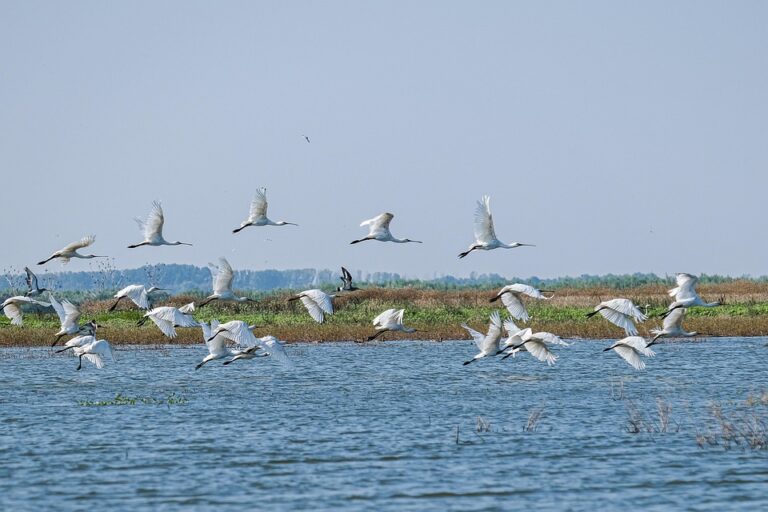Ecotourism and the Digital Age: How Technology is Enhancing Sustainable Travel
In today’s fast-paced world, the demand for ecotourism has surged as travelers become increasingly mindful of their environmental footprint. The digital age is playing a pivotal role in enhancing sustainable travel, making it easier for individuals to explore the planet responsibly. This article will delve into how technology is transforming ecotourism, making it more accessible, informative, and sustainable.
The Rise of Ecotourism
Ecotourism has experienced tremendous growth over the last decade. According to a report by the Global Ecotourism Network, the global ecotourism market is projected to reach $449.9 billion by 2025. This increasing trend highlights the importance travelers place on sustainability when planning trips. Ecotourism provides an opportunity to experience nature while contributing to conservation efforts and community development. However, the burgeoning industry is not without its challenges.
Technology as a Catalyst for Sustainable Travel
As we embrace the digital age, technology is becoming a vital tool in promoting and improving ecotourism. Here are some ways in which technology enhances sustainable travel:
1. Mobile Applications
Mobile apps are now invaluable resources for eco-conscious travelers. Platforms like "GreenGlobe" and "Ecoventory" provide travelers with comprehensive lists of eco-friendly hotels, tours, and activities. These applications enable users to make informed decisions by offering insights into a business’s sustainability practices. As a result, travelers can prioritize ecotourism options that align with their values.
Example: The "Responsible Travel" app allows users to filter accommodation and tour options based on eco-friendly criteria, giving them a much more sustainable travel experience.
2. Online Communities and Blogs
Digital platforms allow travelers to share their experiences and recommendations, fostering a sense of community among those who prioritize sustainable travel. Influential travel bloggers and eco-warriors in the digital space, such as "The Ecotourist" and "Nomadic Matt," have created communities where travelers can exchange tips and stories about their ecotourism adventures.
3. Smart Devices
Smart technology, such as GPS-enabled devices and drones, is revolutionizing the way we explore the natural world. They contribute to ecotourism by enabling travelers to navigate eco-friendly trails, monitor wildlife, and engage in responsible photography. For instance, GPS apps like "AllTrails" help hikers locate sustainable paths while offering information on the flora and fauna of the area.
Empowering Local Communities through Technology
Another significant benefit of technology in ecotourism is its potential to empower local communities. Through platforms like Airbnb and Etsy, local artisans and service providers can reach a global audience, promoting sustainable products and experiences. This aspect of technology is crucial because it directly supports local economies, helping communities thrive while preserving their cultural heritage.
4. Social Media Influence
Platforms like Instagram have the power to promote sustainable travel practices exponentially. Posts showcasing ecotourism adventures motivate followers to consider environmentally responsible travel options. Influencers highlight destinations that are embracing eco-friendly practices, leading to a positive influence on travel trends.
Technology’s Role in Education and Awareness
One of the significant contributions of technology to ecotourism is increasing awareness about environmental issues. Online courses, documentaries, and social media campaigns educate travelers about the impact of their choices on the planet. The more travelers know, the more they are inclined to choose eco-friendly options.
Statistics on Awareness
A survey conducted by Booking.com revealed that 81% of global travelers believe that sustainable travel is essential. This statistic underscores the notion that knowledge and technology work hand-in-hand to create a more conscientious traveler.
Challenges and Considerations
Despite the many advantages technology offers in promoting ecotourism, challenges remain. The digital divide can prevent some communities from benefiting from technological advancements. Additionally, the over-commercialization of ecotourism can lead to cultural degradation and environmental damage if not managed responsibly.
Conclusion
The intersection of ecotourism and technology presents exciting opportunities for sustainable travel. As travelers increasingly prioritize greener choices, technology will continue to enhance their ability to explore responsibly. From mobile apps to social media influence, the digital age empowers travelers to make more informed decisions and engage with local communities.
To further explore the world of ecotourism and sustainable travel, check out these insightful articles on buzzo.live:
- 10 Tips for Responsible Travel
- The Future of Ecotourism: Sustainable Destinations
- Local Experiences: How to Travel Like a Local
For more in-depth insights on the eco-friendly travel movement, visit reputable external sources like the International Ecotourism Society and the World Wildlife Fund.
By embracing technology, we can help shape the future of ecotourism, ensuring that our exploration of the planet is as sustainable as it is enriching. Let’s walk into the future thoughtfully and respectfully, ensuring that the beauty of nature is preserved for generations to come.
Image Suggestions:
- A lush, sustainable eco-resort surrounded by nature (Alt text: Ecotourism site showcasing sustainable practices).
- A traveler using a mobile app while hiking on an eco-trail (Alt text: Traveler using technology to enhance ecotourism experience).
By tailoring your travels with the tools technology provides, you contribute to the sustainable future of our planet while experiencing its wonders responsibly.


